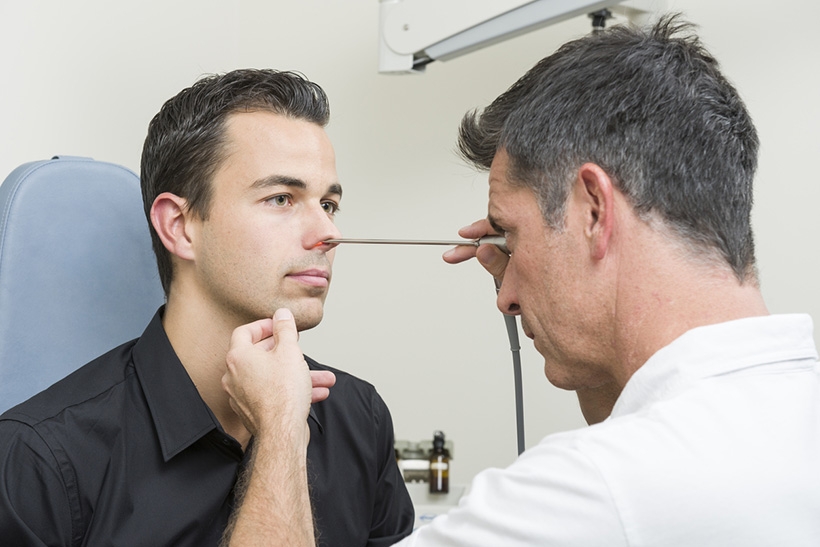Up to 13 million people in the United States have nasal polyps, and since you’re reading this, you’re likely one of them. Thanks to these growths, you’re unable to breathe freely, and medications just aren’t doing the trick. So, now you’re opting to have us surgically remove the growths, and you want to know what to expect afterward.
The first thing to know is that Houston Sinus Surgery’s own Dr. Cecil Yeung introduced functional endoscopic sinus surgery (FESS) to the Houston area almost two decades ago and has performed more than 4,000 of these procedures. He and Dr. Marcus Hershey are board certified otolaryngology - head & neck surrgeons specialized in the treatment of nasal polyps.
Now that you know you’re in excellent hands, let’s take a look at what you can expect during your recovery from nasal polyp removal surgery.Immediately after your FESS
Dr. Yeung and Dr. Hershey typically perform nasal polyp removal surgery on an outpatient basis, which means you’re free to go home the same day. We do use general anesthesia, so you’ll be groggy afterward and will need someone to drive you.
Drainage
When we send you home, we place gauze under your nose to capture drainage and, depending upon the extent of the FESS, we may also place gauze inside your nose.
If we pack your nose, please don’t do anything with these bandages, which we will remove during your follow-up visit. If you only have gauze outside your nose, feel free to swap the dressing out as often as you’d like.
You should expect that your nose will drain for a few days after your surgery, and blood will be a part of this. Please don’t blow your nose, as this will only exacerbate the issue. And, if you have to sneeze, do so with your mouth open to lessen the impact on your nasal passages.
You should use saline nasal sprays and perform nasal rinses several times a day. Rest assured, we’ll give you specific instructions on performing these flushes.
If your nose bleeds continuously, try tilting your head back. We may also supply you with a nasal spray that can help curb the discharge.
After about a week, the drainage should subside.
Swelling
You should also expect some swelling inside your nose that may last a week or two. Due to the inflammation, you may have some congestion, and breathing may be a little more difficult.
Due to the drainage and swelling that occurs during the first week, we advise that you plan to take time off from work and take it easy.
Long-term recovery
As we mentioned, once the drainage stops and the swelling comes down, you’ll be able to breathe more freely.
We do ask that you wait for a couple of weeks before engaging in strenuous activities that place a fair amount of pressure on your nasal passages and sinuses. This includes aerobic activities as well as activities during which you place your head down, such as lifting weights.
Looking farther into the future, you should reap the benefits of your nasal polyp removal surgery in terms of better breathing, no snoring, and fewer issues with chronic sinusitis within a month.
If you have more questions about what to expect after your nasal polyp removal surgery, call our Houston office at or book an appointment online today.




